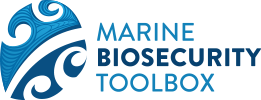Below is a list of key members of our research team. If you are interested in finding out more about the programme or specific activities feel free to make contact with specific people, or drop us a line using the generic contact form.
PROGRAMME LEADS
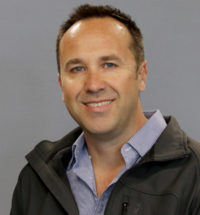
Grant Hopkins
Grant’s research focuses on broad marine biosecurity issues. He leads the PROTECT theme, which looks to identify novel approaches to biofouling management on coastal infrastructure, working closely with our research partners, industry and stakeholders to develop prototype systems and put them through their paces in challenging real-world scenarios.
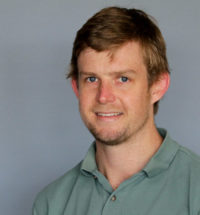
Patrick Cahill
Patrick’s research relates primarily to the management of marine biofouling, including developing antifouling technologies and reactive control of invasive marine pests. He is applying these skills in the PROTECT theme to help develop eco-friendly approaches to keep port and marina infrastructure free from fouling.
PROGRAMME CO-ORDINATOR
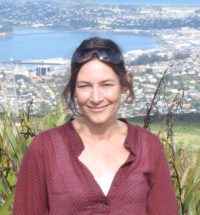
Charlotte Jarvis
Charlotte is Cawthron’s Project Services Team Leader, with a focus on bids, proposals and contract management and devotes some of her time to support the Marine Biosecurity Toolbox programme team.
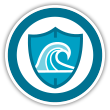
PROTECT

Grant Hopkins
Grant’s research focuses on broad marine biosecurity issues. He leads the PROTECT theme, which looks to identify novel approaches to biofouling management on coastal infrastructure, working closely with our research partners, industry and stakeholders to develop prototype systems and put them through their paces in challenging real-world scenarios.
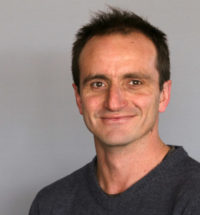
Javier Atalah
Javier is a marine ecologist with a broad range of expertise. The skills that he will contribute to this programme are marine invasion ecology, bio-control approaches for mitigating biosecurity risks, and data science.
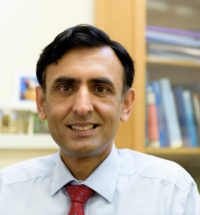
Jas Pal Badyal
Jas Pal is internationally recognised for his pioneering research on the design of functional surfaces for technological and societal applications, and will apply his knowledge of surface chemistry to the use of bubble streams.
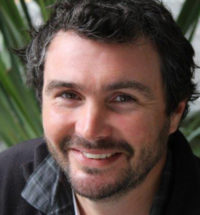
Paul South
Paul is a marine ecologist with a particular interest in the population and recruitment dynamics of marine communities in natural and aquaculture settings. Paul has a lead role in the ecological engineering theme of PROTECT, aimed at developing substrates for enhancing valued native species on coastal infrastructure.
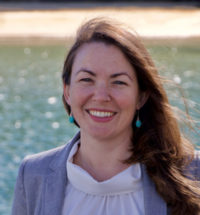
Katie Dafforn
Katie is an environmental scientist with interests in monitoring and managing human impacts in marine systems. Katie is collaborating in this project on the design of ecologically engineered surfaces for native species enhancement.
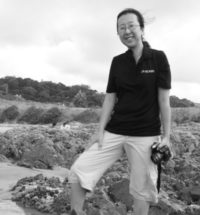
Marie Joo Le Guen
Marie Joo is a materials scientist currently leading Scion’s Additive Manufacturing team. Its role is to support a circular bioeconomy which includes preserving the environment. The Marine Biosecurity Toolbox programme is a wonderful opportunity to understand and help New Zealand endemic species using digital technologies.
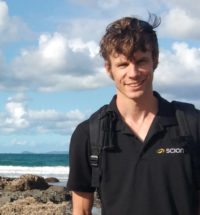
Rob Whitton
Rob is a Mechanical Engineer with a background in renewable energy. At Scion, he works in the Bioproducts and Manufacturing team where he designs equipment and produces 3D printed prototypes. Rob has been enjoying the 3D scanning the team have carried out so far around marine habitats, and is looking forward to getting his hands dirty (and feet wet) again, scanning more mussel beds with the programme partners.
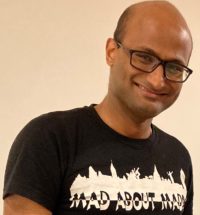
Sumanth Ranganathan
Sumanth is a biochemical engineer with specialist skills in biorefinery, bioprocess development and editing of complex digital imagery. In this programme, Sumanth is in charge of the photogrammetric reconstruction of mussel reefs habitat layers and editing the meshes obtained from 3D scanning and photogrammetry for 3D printing and habitat model development.
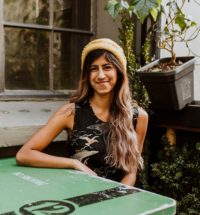
Dayanitha Damodaran
Dayanitha is a PhD student based at Cawthron working in the PROTECT theme of the Biosecurity Toolbox. Her research investigates the habitat requirements of native New Zealand foundation species to inform and produce ecological engineered structures that promote native species on coastal infrastructure. Prior to starting her Ph.D., Dayanitha completed her BSc and MSc at Victoria University of Wellington, interned in Becker Lab in the United States, and worked as a junior fisheries scientist in the consultancy sector.
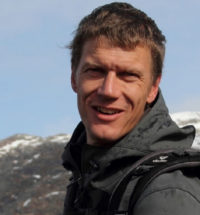
Oli Floerl
Oli’s research focuses on biofouling management, urban ecology and developing measures to limit the spread and impacts of marine pests. Oli has co-led the programme in 2019-2023 but has recently left Cawthron and joint LWP. He is still critically involved in the toolbox project outcomes.
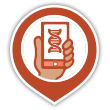
DETECT
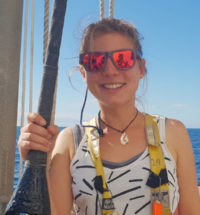
Ulla von Ammon
Following on from Ulla’s PhD research on developing novel molecular tools for biosecurity purposes, Ulla continues that work and now leads the DETECT component. In the programme, Ulla is focusing on developing a whole genome database of key invasive species and their native counterparts and contributing to optimization of sampling techniques for molecular surveillance.
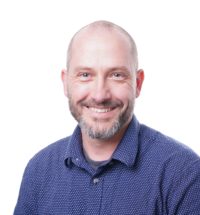
Xavier Pochon
Xavier is an expert in applying molecular techniques for environmental monitoring, design of molecular sampling devices and large-scale citizen science programmes. Xavier is leading the citizen science component of the programme and is working with other DETECT team members on designing and optimizing molecular tools for biosecurity applications.
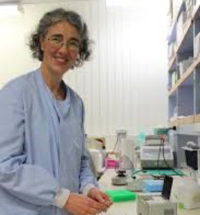
Jo-Ann Stanton
Jo is an expert in High Throughput Sequencing technologies and molecular diagnostics. In the programme she is developing molecular tools for point-of-need applications (in situ detection of marine pests by non-expert users).
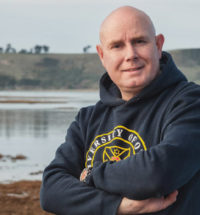
Neil Gemmell
Neil is a geneticist with interests in the development and deployment of new molecular tools for a variety of applications in biosecurity and conservation. He is working on fit-for-purpose molecular assay systems for rapid biosecurity surveillance.
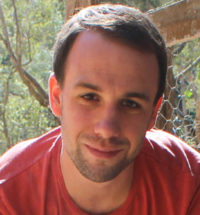
Gert-Jan Jeunen
Gert-Jan is a Post-doctoral Research Fellow with research interest in spatial and temporal resolution aquatic environmental DNA (eDNA) in the marine environment and innovative methodologies for eDNA sampling and biodiversity detection. In the programme, Gert-Jan works on designing and validating primer sets for marine pests’ detection.
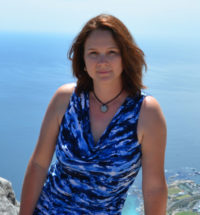
Anastasija Zaiko
Anastasija has broad expertise in aquatic ecology, and the development and assessment of molecular tools for monitoring and surveillance. Anastasija has co-led the programme in 2019-2023 and oversaw the DETECT work stream. Although she has recently left the Cawthron Institute and opened her own sequencing facility “Sequench“, Anastasija continues to be involved in the programme’s research activities contributing to the critical outputs.
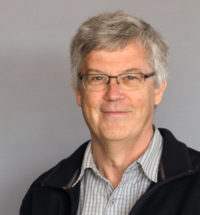
Ross Vennell
Ross’ research focuses on physical oceanographic modelling: using particle tracking to predict areas where eDNA from source populations can be detected. Modelling is used to design eDNA field sampling plans and to predict where non-indigenous populations might be once the eDNA analysis is completed.
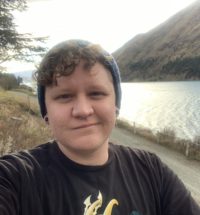
Jackson Treece
Jackson is a research technician with a background in clinical laboratory science and molecular biology. He has been working on point-of-need applications of molecular pest detection tools for use in a variety of settings.
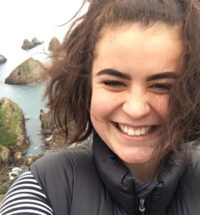
Jonika Edgecombe
Jonika is a PhD student at the University of Otago, interested in developing eDNA-based point of need molecular detection techniques for biosecurity. Her project will be focused on optimizing such techniques for use by non-professionals in parallel with the development and implementation of a framework to empower citizen science.
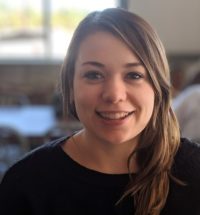
Michelle Scriver
Michelle is a PhD student based at the Cawthron Institute working in the DETECT theme of the Marine Biosecurity Toolbox. Her research focuses on optimizing sampling approaches and design of molecular tools for marine biosecurity surveillance. This research will help to answer questions regarding environmental DNA/RNA (eDNA/eRNA) distribution in coastal waters and where, when, and how to sample eDNA/eRNA to increase efficiency of marine pest detection and surveillance.
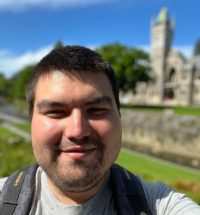
Benjamín Durán Vinet
Ben is a PhD student based at the University of Otago. His research is focused on the establishment and optimization of CRISPR/Cas technologies for the detection of marine bioinvasive species, for lab-based and in situ applications.
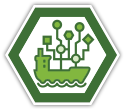
MANAGE & RESPOND
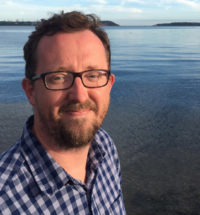
Ian Davidson
Ian specializes on basic and applied research on marine biosecurity and the drivers and impacts of anthropogenic change in marine ecosystems. His is leading the MANAGE & RESPOND team and is also highly involved in the PROTECT component, working on invasion prevention, transport pathways, and biosecurity management.
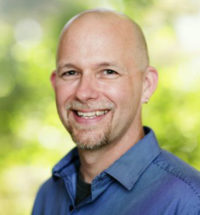
Eric Treml
Eric specialises in network analysis, spatial and dynamic modelling, and seascape ecology. In this programme he has a lead role in the maritime transport model development and network-based pathway analysis to develop optimised prevention and incursion response strategies in the MANAGE & RESPOND research theme.

Oli Floerl
Oli’s research focuses on biofouling management, urban ecology and developing measures to limit the spread and impacts of marine pests. Oli has co-led the programme in 2019-2023 but has recently left Cawthron and joint LWP. He is still critically involved in the toolbox project outcomes.
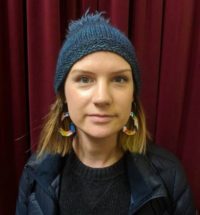
Simone Stevenson
Simone is a post-doc in the Marine Spatial Ecology and Conservation Lab, led by Eric Treml. Her research focuses on the development of quantitative tools for conservation decision-making, in particular indicators and models, as well as on international biodiversity policy. Her role in the program is to contribute to the development of the maritime transport model and analysis to further inform invasive species management decisions.
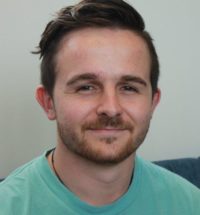
Kyle Hilliam
Kyle is a PhD student at Deakin University, within the Marine Spatial Ecology and Conservation lab, led by Eric Treml. His research focuses on New Zealand’s domestic recreational vessel network, natural dispersal of invasive species, optimal management for invasive networks and the invasion process, based upon expertise in invasive species ecology, numerical and quantitative approaches.
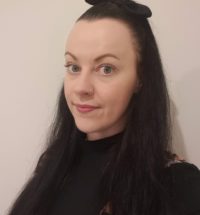
Jess Phipps
Jess is an Honours student based at Deakin University in Geelong with an interest in marine spatial ecology and conservation. She is currently in the final stages of her research project that is focussed on assessing the risk of non-indigenous species spread via marine vessels and how these risks may change under future climate change scenarios.
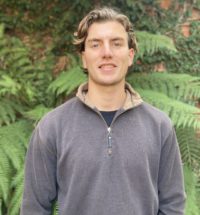
Cal Faubel
Cal is an Honours student from the Marine Spatial Ecology and Conservation Lab, led by Eric Treml. His Honours thesis is quantifying network dynamics and associated biosecurity risk of domestic recreational vessel movements, with a particular focus on recent marine pest incursions at Great Barrier Island, an iconic high-value area in northern New Zealand. He is also looking at how specific life history traits impact spread.

ECONOMICS & DECISION-SUPPORT
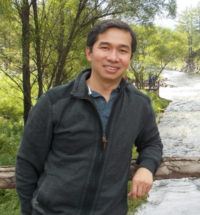
Richard Yao
Richard is an environmental economist at Scion. His main research area is the assessment of the social, environmental and economic values provided by New Zealand’s natural resources. Richard leads the ECONOMICS AND DECISION SUPPORT theme, assessing the economic, environmental and social impacts of the innovative biosecurity protection measures being developed by the programme.
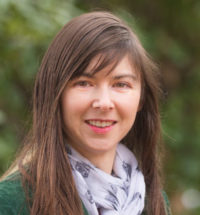
Melissa Welsh
Melissa is a resource economist based at Scion, with a background in modelling infectious diseases. Melissa is involved in the ECONOMICS & DECISION-SUPPORT research theme, to estimate the net benefits of the prevention and detection methods being developed, and also in MANAGE & RESPOND to develop mathematical models of invasive species spread.
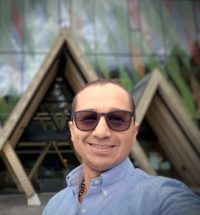
Julio Botero
Julio is a PhD candidate in Global Supply Chains and Trade at Lincoln University and has a background in economics. Julio is part of the ECONOMICS & DECISION-SUPPORT and MANAGE & RESPOND teams. He is working on modelling and forecasting to estimate the benefits of the prevention and detection methods and the spread of invasive species.
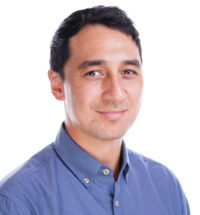
Alaric McCarthy
Alaric is a socio-ecological scientist who works at the interface between social science (behaviour change, understanding values, capacity building) and biophysical sciences (fisheries, biosecurity). Here he seeks to understand the factors that influence marine biosecurity-related behaviour of coastal users in order to develop tools for change.
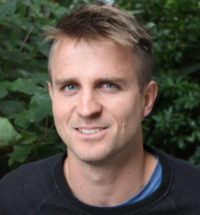
Malcolm Smeaton
Malcolm’s skillset is in oceanography, fluid mechanics and mathematics. He undertakes fluid modelling for the PROTECT theme and assist with the development of apps and interactive tools in the ECONOMICS & DECISION-SUPPORT research theme.
Vision Mātauranga
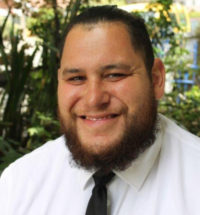
Te Rerekohu Tuterangiwhiu
Te Rerekohu is currently a Kaiārahi Rangahau Kaimōana at Cawthron Institute in Nelson and holds formal qualifications in Mātauranga Māori, Teaching, Marine Biology and Aquaculture. He is involved in several projects at Cawthron that span Shellfish and Finfish Aquaculture, Aquatic Animal Health, Biosecurity and Seafood Safety, and he believes there is a place for te reo o ngā hapū and a wider Te Ao Māori to be heard in these kaupapa.
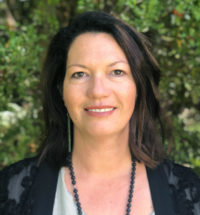
Juliane Chetham
Juliane Chetham of Patuharakeke Te Iwi Trust Taiao/ Resource Management Unit has many years of experience working with hapū and iwi in the resource management and customary fisheries space.
Along with Dave Milner, their role in the programme is to co-design a Mātauranga Māori platform to embed manaakitanga and kaitaiakitanga values into the research. They will utilise Mātauranga Māori in a case study within their rohe to assist with selection of target species surveillance methodologies, and to co-develop a planning and implementation pathway for rangatahi/tai tamariki engagement in marine biosecurity.
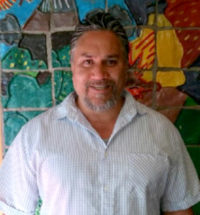
Dave Milner
Dave Milner of Patuharakeke Te Iwi Trust Taiao/ Resource Management Unit has many years of experience working with hapū and iwi in the resource management and customary fisheries space.
Along with Juliane Chetham, their role in the programme is to co-design a Mātauranga Māori platform to embed manaakitanga and kaitaiakitanga values into the research. They will utilise Mātauranga Māori in a case study within their rohe to assist with selection of target species surveillance methodologies, and to co-develop a planning and implementation pathway for rangatahi/tai tamariki engagement in marine biosecurity.
END-USER PARTNERS
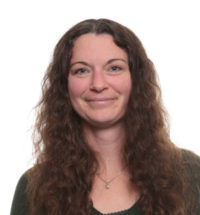
Sam Happy
Sam developed and leads Auckland Council’s marine biosecurity programme, and has over 13 years’ experience in natural environment management. Sam works with other regions and agencies on a variety of collaborative initiatives including policy development and marine biosecurity related research and development. She is Auckland Council’s representative on the Advisory and Implementation Group and her role in the progamme is to provide partner support and input to research and development, and in-kind support and workstream connections.
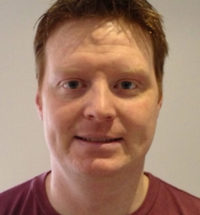
Kaeden Leonard
Kaeden is a marine biosecurity specialist at Northland Regional Council with more than 10 years’ expertise in marine invasion ecology/biogeography and both ex-situ and in-situ experimental design. Northland Regional Council are end-user partners in this programme, and whose current marine biosecurity programme focuses on active targeted marine pest surveillance and incursion management across Northland’s ten harbors and coastline.
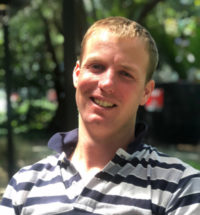
Liam Falconer
Liam’s interest in being involved with the programme is to provide input in the development of monitoring and pathway tools to ensure that the tools that fit-for-purpose and can be used and operated by the field teams that undertake pest surveillance.
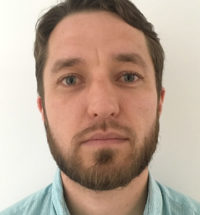
Abraham Growcott
Abraham’s role involves improving early detection capability of marine pests so that management of them is likely to be more successful. Early detection is achieved through educating the public, investment in targeted marine surveillance programmes and development of new technologies. This research programme is very exciting as it will develop new tools that we can use to prevent, detect, and manage marine pests. Abraham’s goal is to connect expertise within Biosecurity New Zealand to specific programmes so that any outcomes will deliver maximum benefits to New Zealanders.
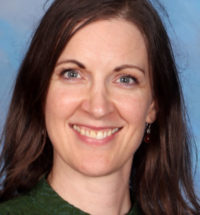
Natalie Tregidga
Natalie is Co-Head of Science Learning Area at Nelson College for Girls. We are currently working with Cawthron to design a junior teaching and learning programme to be used in the early stages of this study at our college. This will be further embedded into our programmes as technology in the project develops.
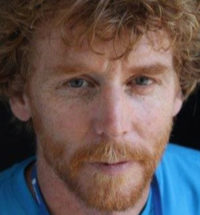
Johnnie Fraser
Johnnie is the Head of Science at Nelson College. He has been teaching Junior Science and Biology for 15 years and is still fascinated by the natural world. He relishes opening students’ eyes to the wonders around them and tells them how lucky they are to live in a country like Aotearoa New Zealand, where the local flora and fauna is so accessible and so awesome. In 2016 he completed the Science Teachers Leadership Program through the RSNZ at Cawthron Institute. The links forged through the program have enabled him to be involved in the Biosecurity Toolbox Project. He is excited about engaging students in an authentic hands-on real-world project focusing on marine biosecurity.
